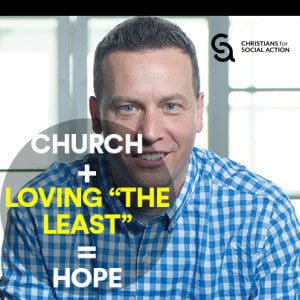When I look at the church, what gives me hope?
Our job description as followers of Jesus is to wash dirty feet.
 At the church where I serve, people see footwashing as a privilege—we don’t have to wash dirty feet, we get to wash dirty feet! We come to church one day a week so that we can be the church the other six days of the week.
At the church where I serve, people see footwashing as a privilege—we don’t have to wash dirty feet, we get to wash dirty feet! We come to church one day a week so that we can be the church the other six days of the week.
I love having a front-row seat at the lavish parties we throw for thousands of mentally and physically challenged adults in our community. I love seeing Jesus smile as we lead women out of the exotic dance industry, care for the uninsured through our free health clinics, and pack millions of meals for the hungry of Haiti. I love hearing the Father hoot and holler as we provide job training for homeless men and women and give thousands of dollars away each week to strangers in need with no strings attached.
When the words of Jesus to love “the least” become the most important words in your head and heart, you will never lack hope…ever.
Jon Weece is the senior pastor and lead follower of Southland Christian Church, a Restoration Movement church in Lexington, Ky. His first book, Jesus Prom: Life Gets Fun When You Love People Like God Does, is just out from Thomas Nelson.


